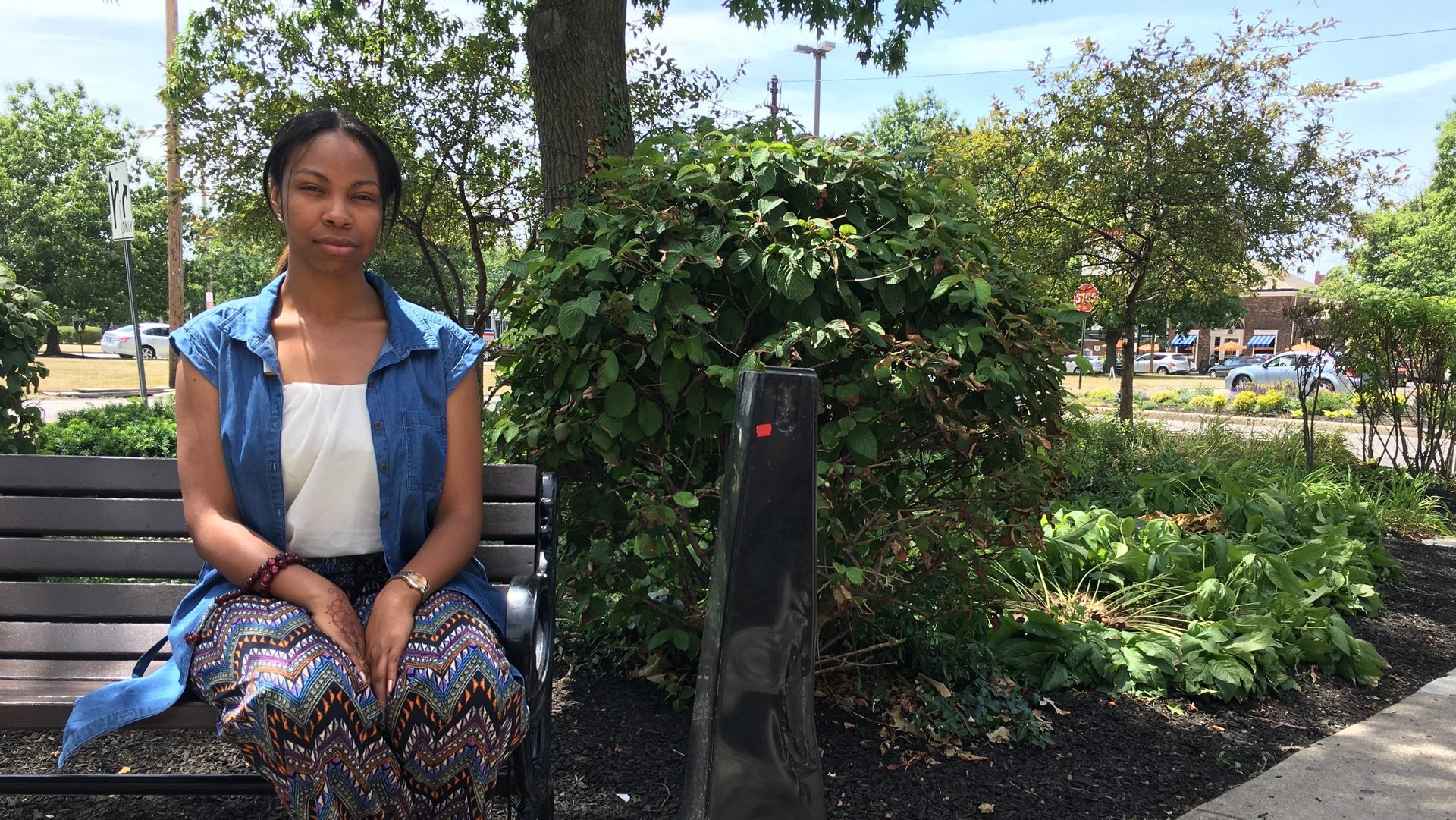“A war zone:” Gun violence in Cleveland through the eyes of a 19-year-old black woman, far from the RNC
Cleveland


Cleveland
A day before the Republican National Convention focused the entire country’s attention on Cleveland, a 19-year-old basketball player named Philip Banks was shot and killed at a party that was meant to raise awareness about gun violence. Downtown Cleveland, where the spotlight is on Melania Trump’s copy-cat tendencies and Ted Cruz’s defiance, could be on a different planet to the young people who live–and die–just a few miles away. One of them is A’bria Robinson, a rising sophomore in college, a community activist who focuses on youth violence, and Banks’ close friend.
“I’m just numb. It’s just so hard to believe,” Robinson said. They had been “sweethearts,” in high school, she said, and they’ve been talking about getting back together. She just spoke with him last week. “He literally wouldn’t hurt a fly. An amazing, amazing human being,” she said, sadly smiling. “He was the sweetest person I ever dated.”
Banks was attending a “Stop the Violence” party at a beach in a park in the Euclid suburb of Cleveland. “We throw these events in hopes for someone who is hurting to get the love they need that day,” Robinson said. According to local media, even 300 people were present at the party when shots were fired, killing Banks and injuring a 12-year-old boy. Two suspects were arrested on Thursday, July 21, Euclid police said in a statement, but the details of what happened are unclear. According to Robinson, Banks was not the target.
She was on vacation when she found out, via Twitter, that Banks had been shot. His name would quickly be transformed into a hashtag, a way the community commemorates victims of gun violence. “I never thought [he’d] be the next hashtag. It just happens so often,” said Robinson.
According to Trace.org, a news website dedicated to tracking gun violence, in the last year, ending on June 30, the gun homicide rate for Cleveland was 29 per 100,000, putting the city higher than Chicago (19.3), and at the same level as Brazil or South Africa. In that period, 113 Clevelanders were killed and 367 were injured.
Gun violence in Cleveland, one of the most segregated cities in the country, and among the poorest is prevalent among the young. One of the suspects in the Banks’ shooting was 19, the other 17.
“The issue is that there is no value in life anymore. These kids are growing up in households where they aren’t taught how important it is to love one another,” Robinson said. They come from low-income, single-parent households. Gangs become their families, she said. They join to feel protected, to have the guidance of someone older than them. It’s about money, about fitting in.
When she was a child, Robinson’s father was in prison for several years. To this day, her family won’t tell her what was the reason for his incarceration, in fear that she would cut off contact with him – and thus her younger brother. Her best friend’s dad was incarcerated as well. “We all have the same stories. Someone’d been incarcerated, someone grew up without their dad, someone’s mother is on drugs.”
This is not the first time Robinson had been so personally touched by gun violence. She was galvanized to fight the deadly epidemic as a sophomore in high school, when a friend who was coming back from a party got shot and killed. They were both 15 at the time. Her cousin was shot in his driveway last year. The street that she lives on in the Kinsman neighborhood of the city is the constant stage for gang wars, with shootouts every day.
On Fourth of July, she says she couldn’t tell the sounds of gunshots from fireworks. “It sounded like World War Three outside my house. If I recorded it, it would’ve sounded like a documentary on the History Channel.”
Except for the rare occasion, the shooting doesn’t phase her. “I’m not scared anymore because I’m used to it,” she said. At the same time, she feels incredulous about what happened Banks. “When you can see yourself spending the rest of your life with someone and then snap, they are taken away, it’s just hard to believe.”
She says that gun violence has shaped who she is. “I’ve always been surrounded by hatred, so I try to spread love.”
At a local mosque, she mentors a group of young girls, whom she helps cope with various problems, including vicious bullying. She is writing a book called “10 Things Every Girl Should Know.”
Robinson, who went to a well-known Catholic school in Cleveland on a work-study program, plans to go to law school after college to provide legal assistance in her community.
She loves Cleveland, as much as she’s saddened by it. In almost one breath, she says that Cleveland is a beautiful city, and points to a spot in the manicured, leafy square where we are sitting. “Last summer a woman was gunned down here.”